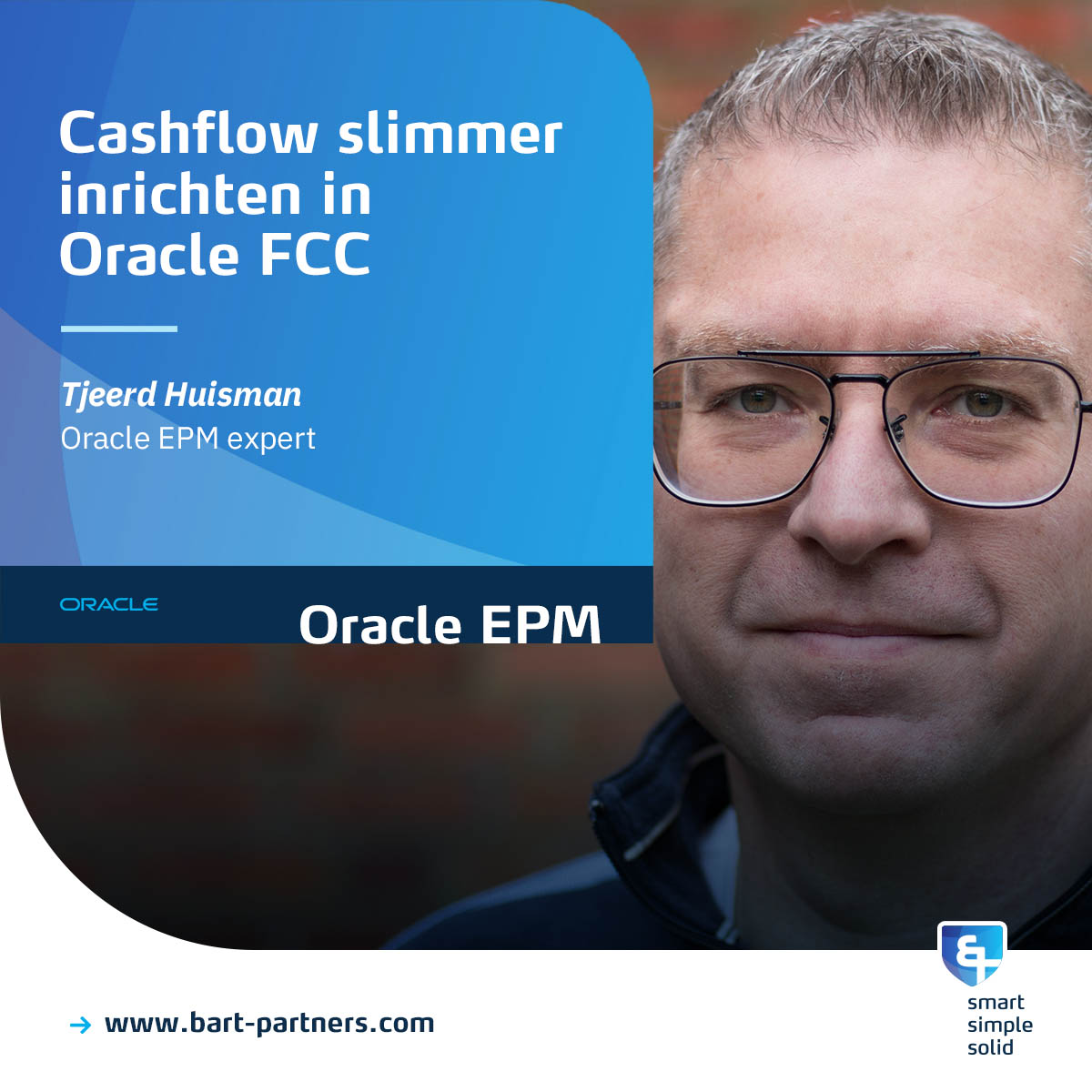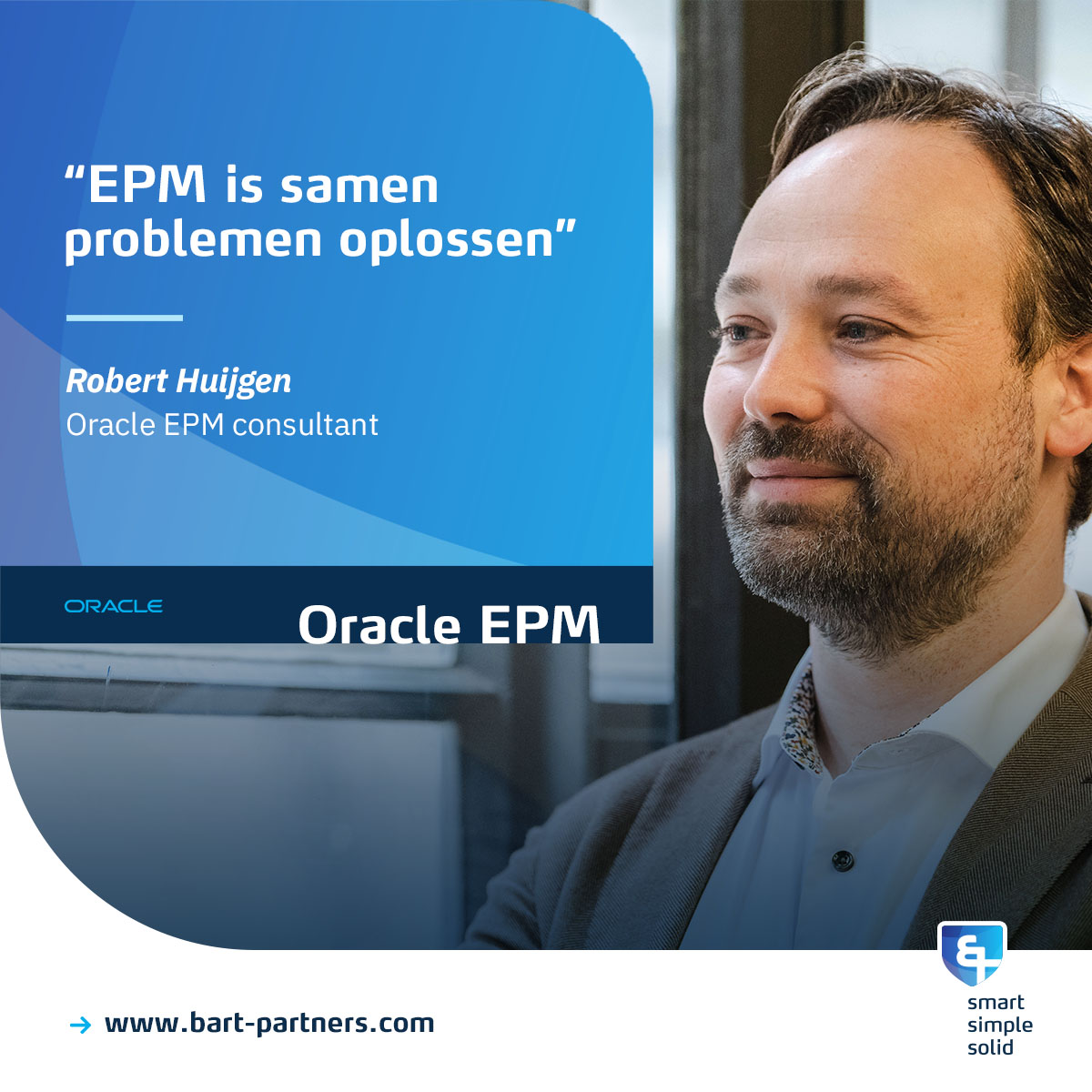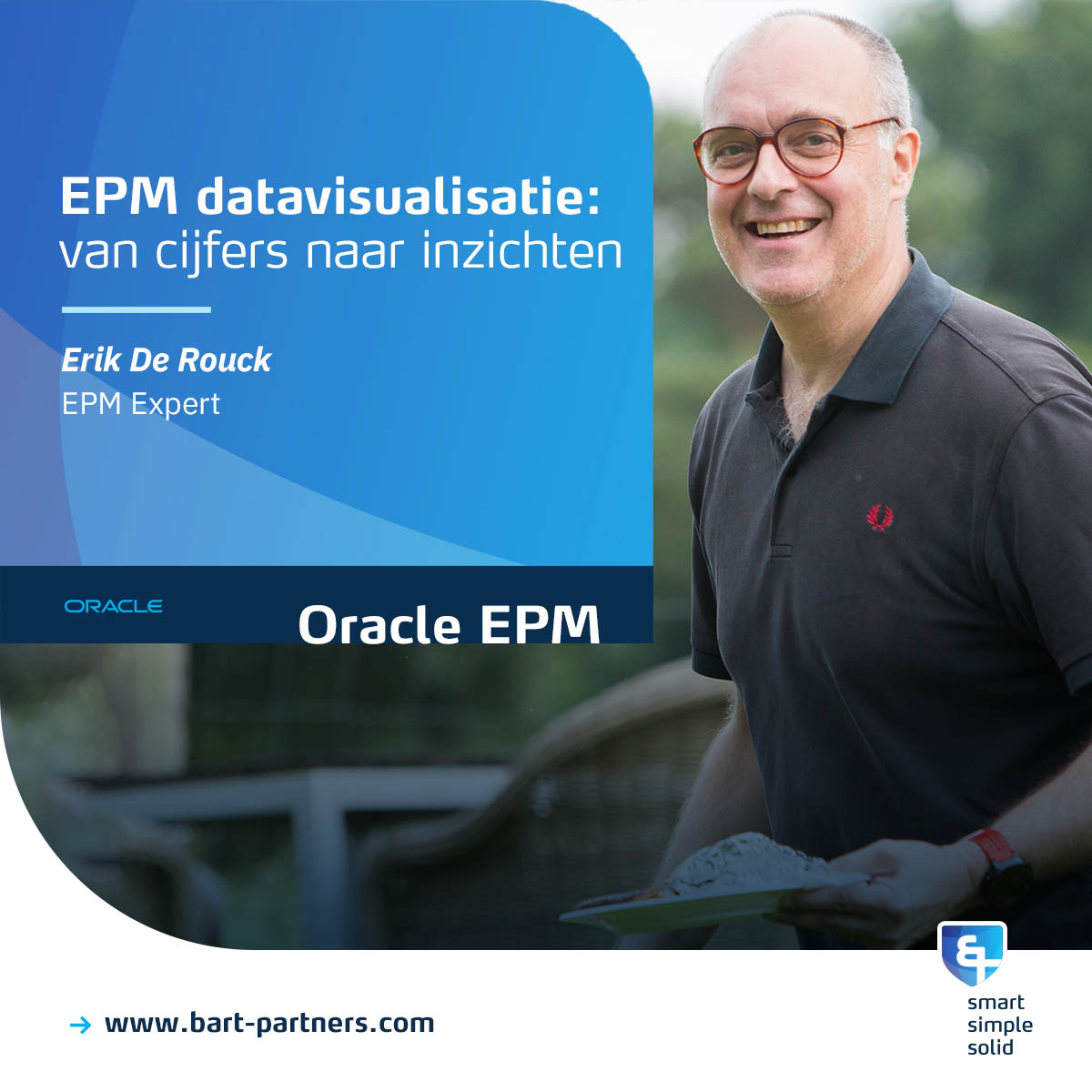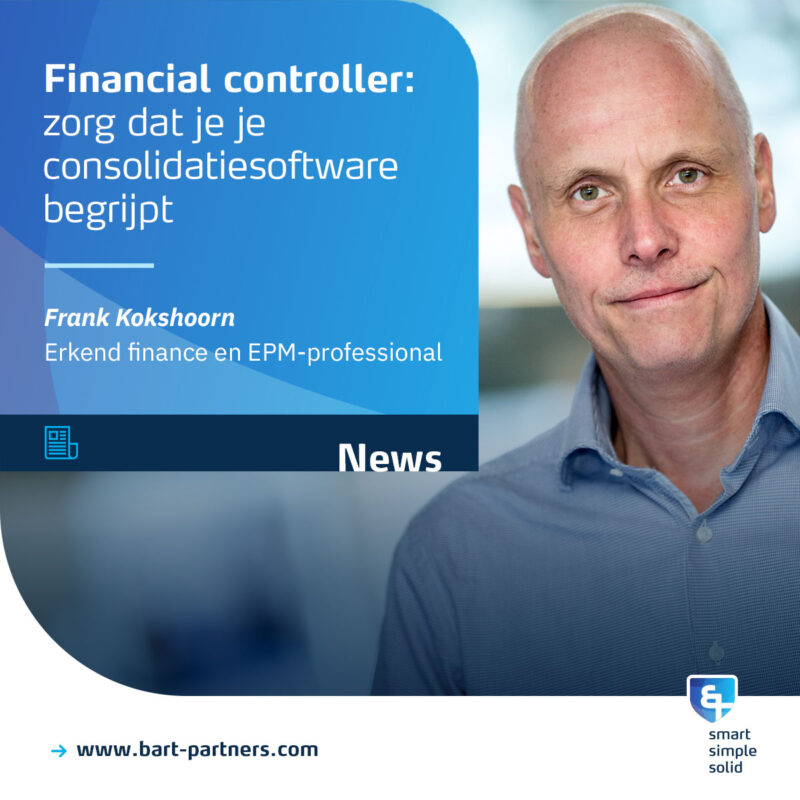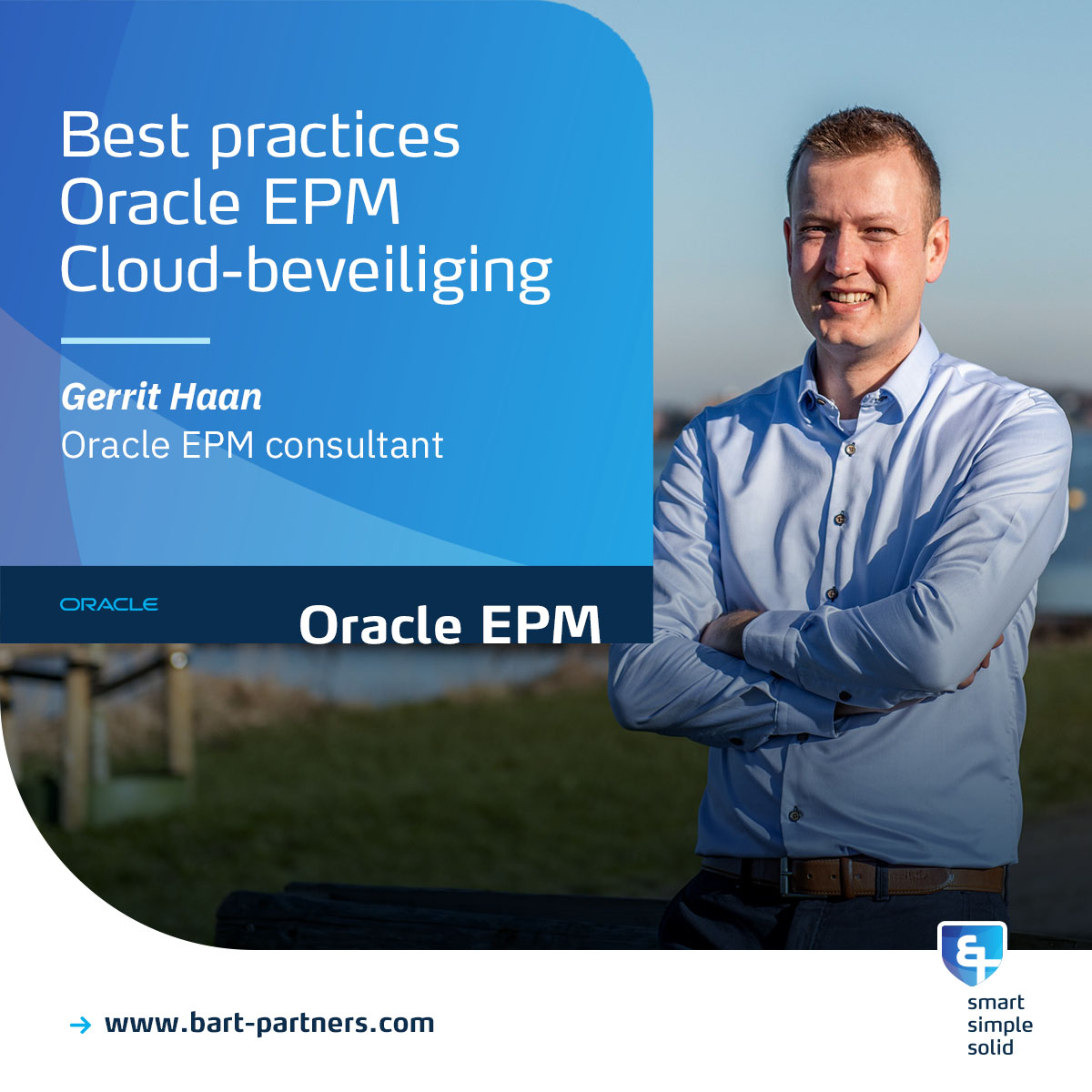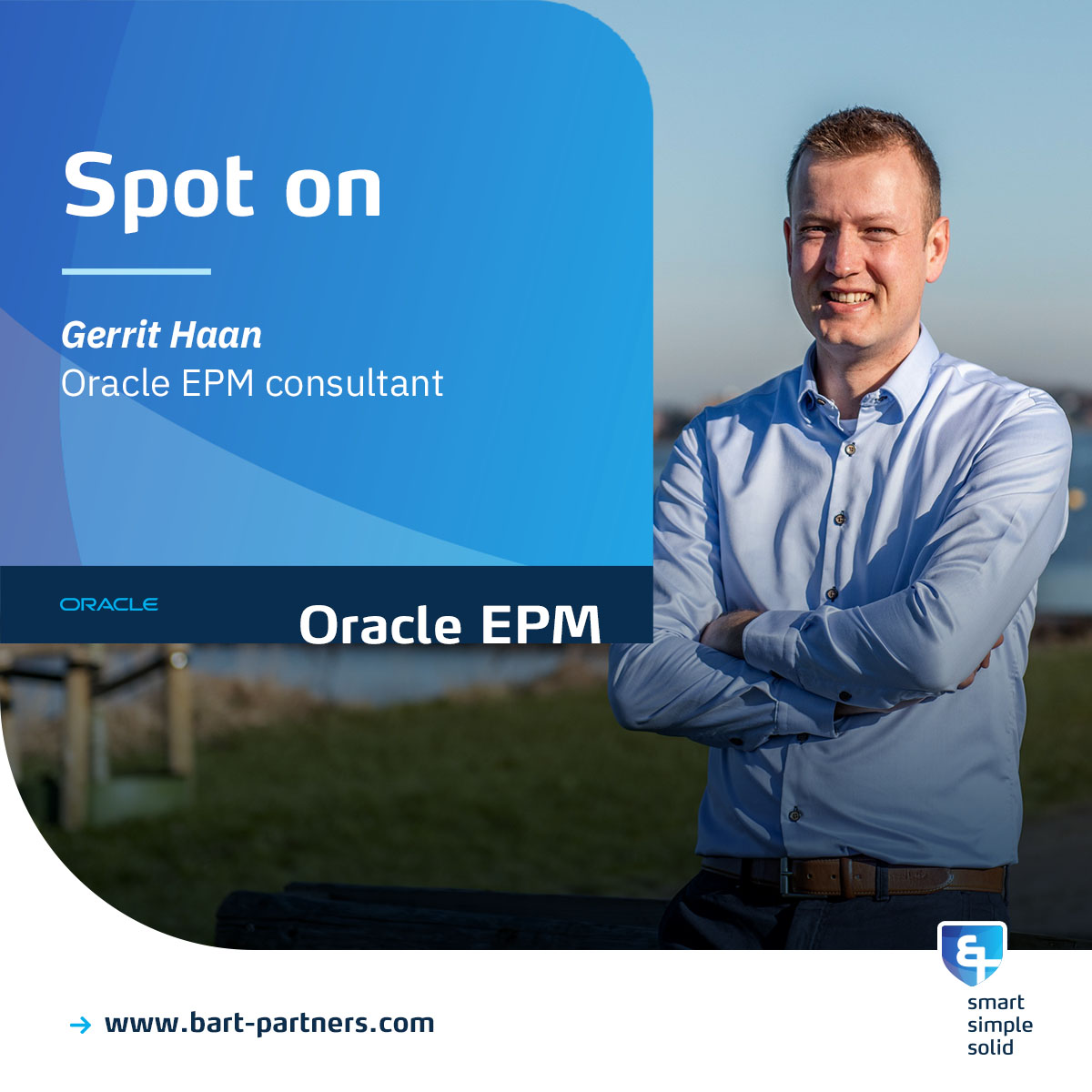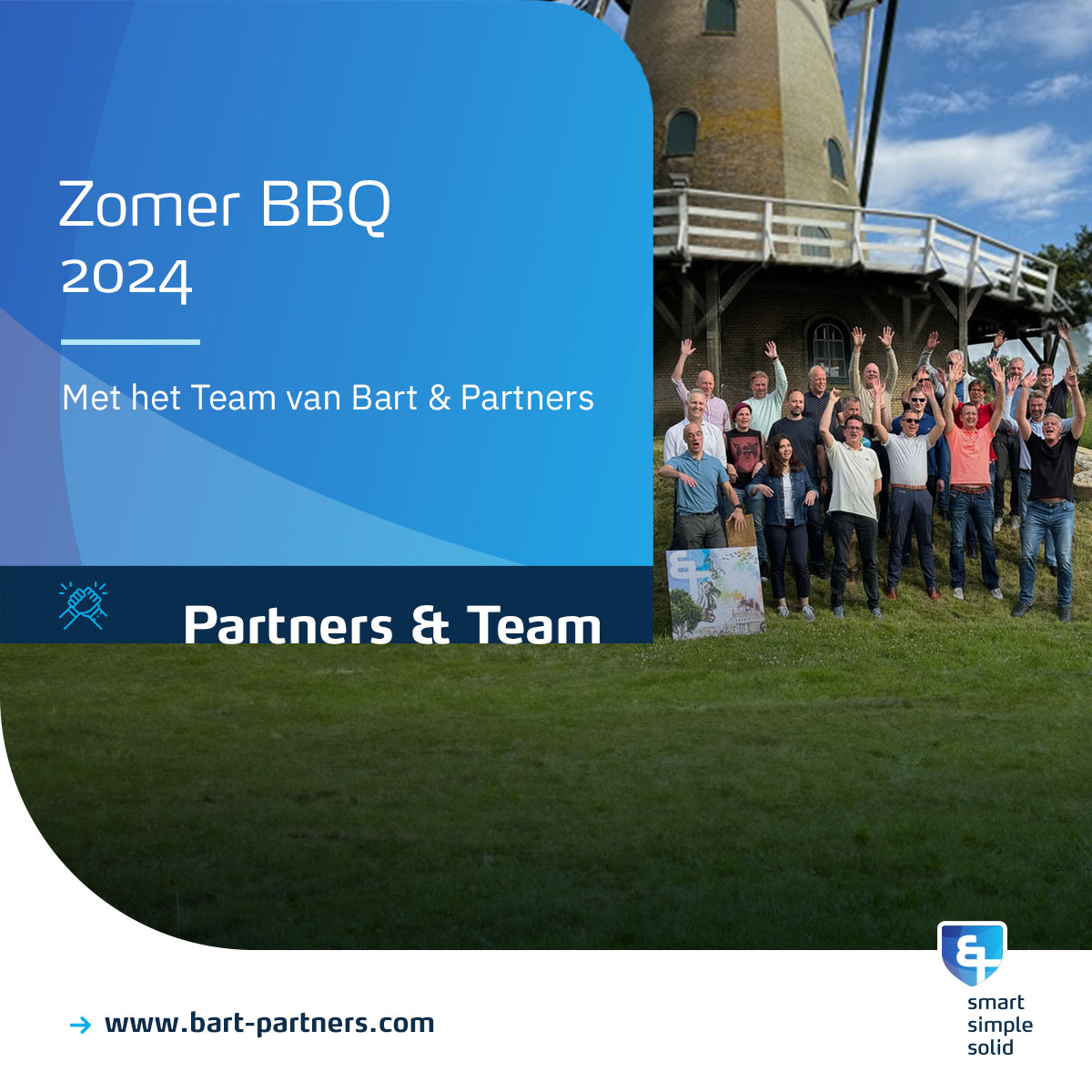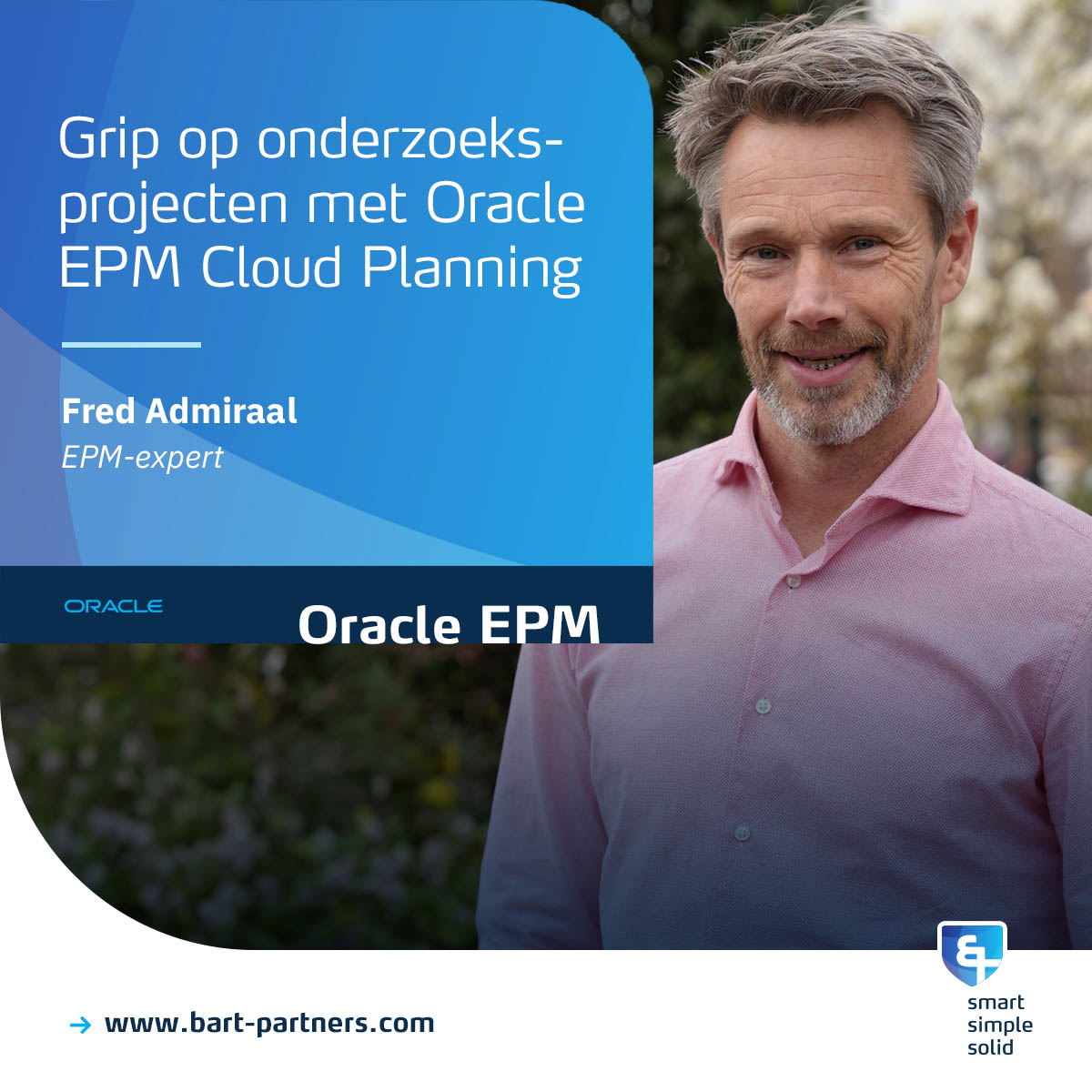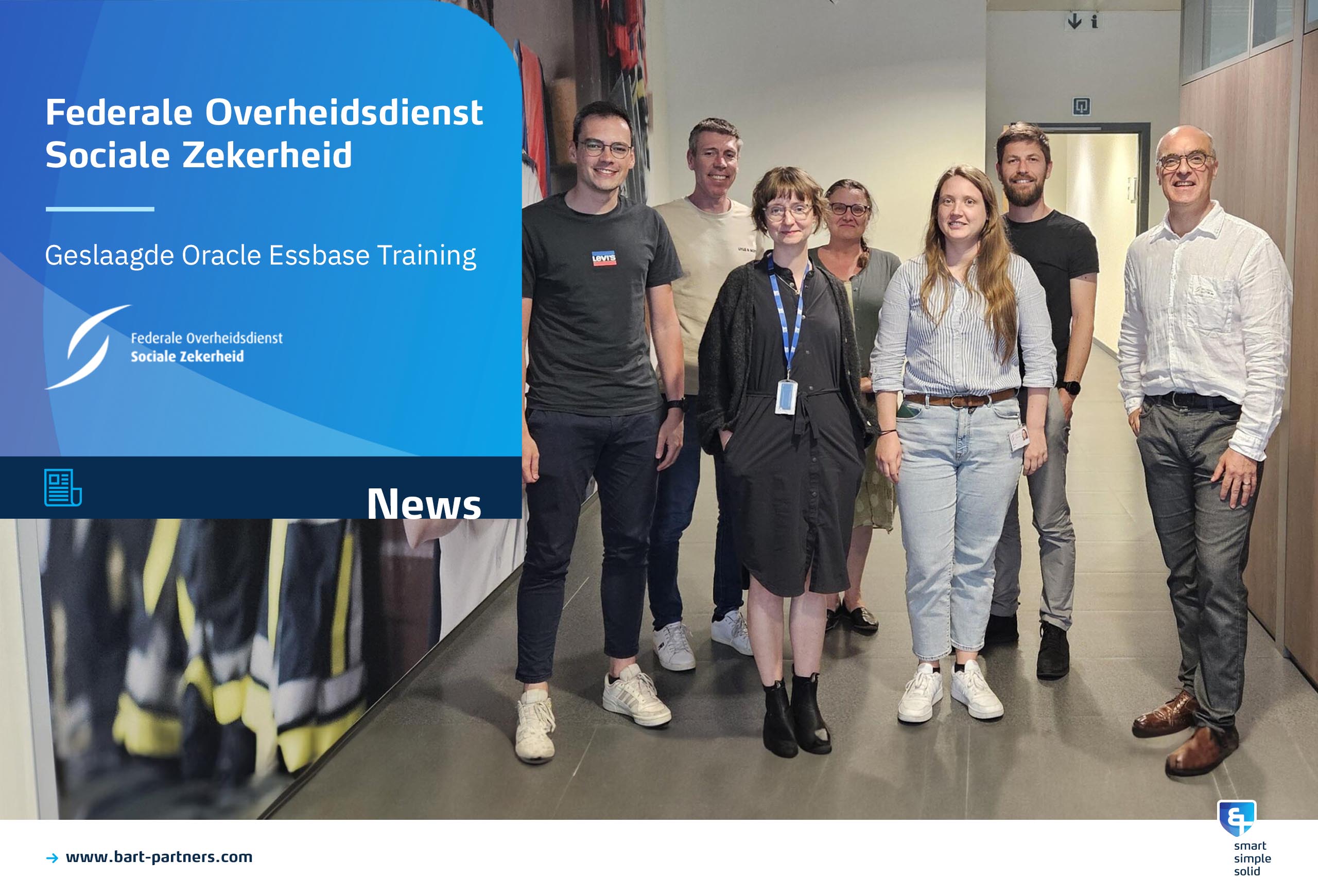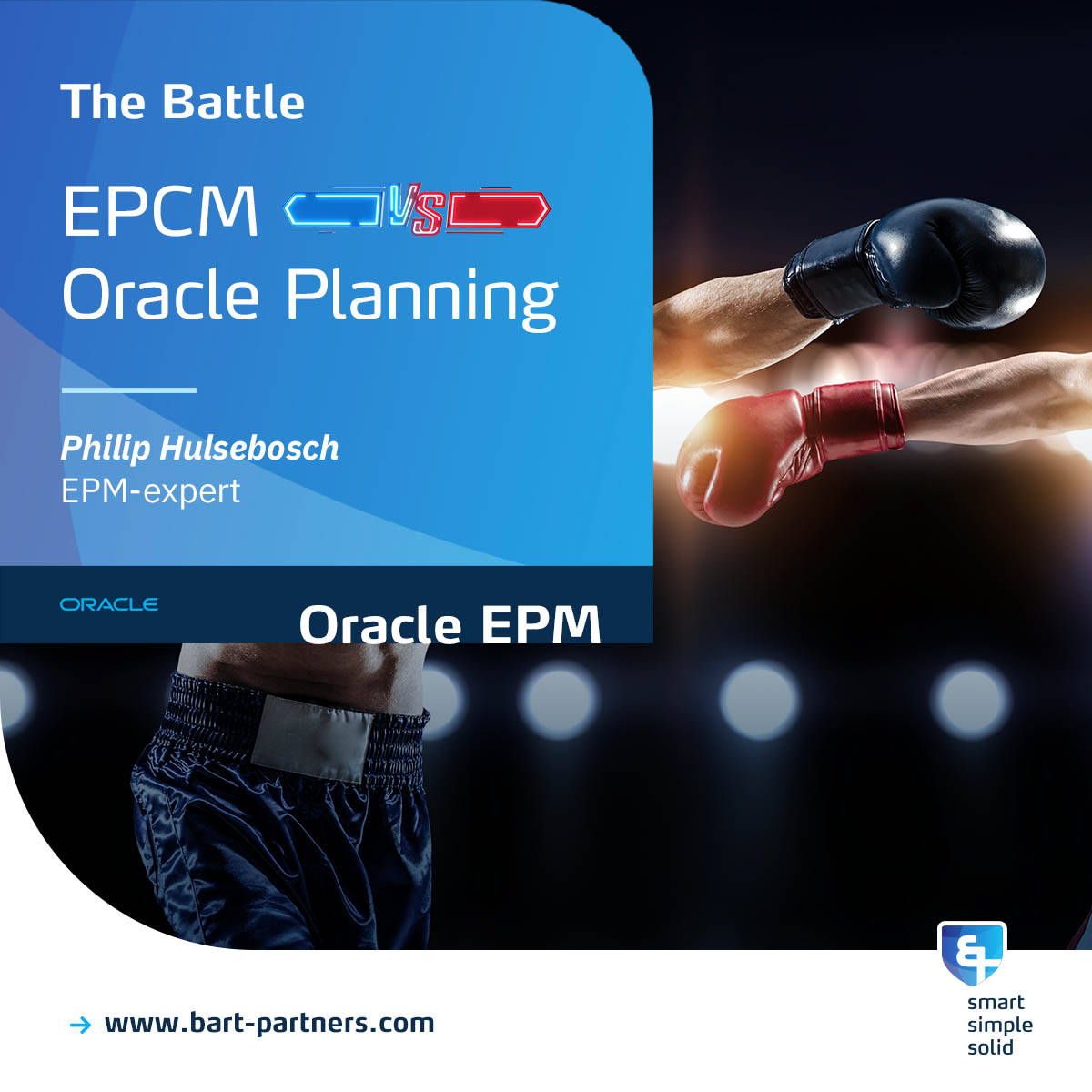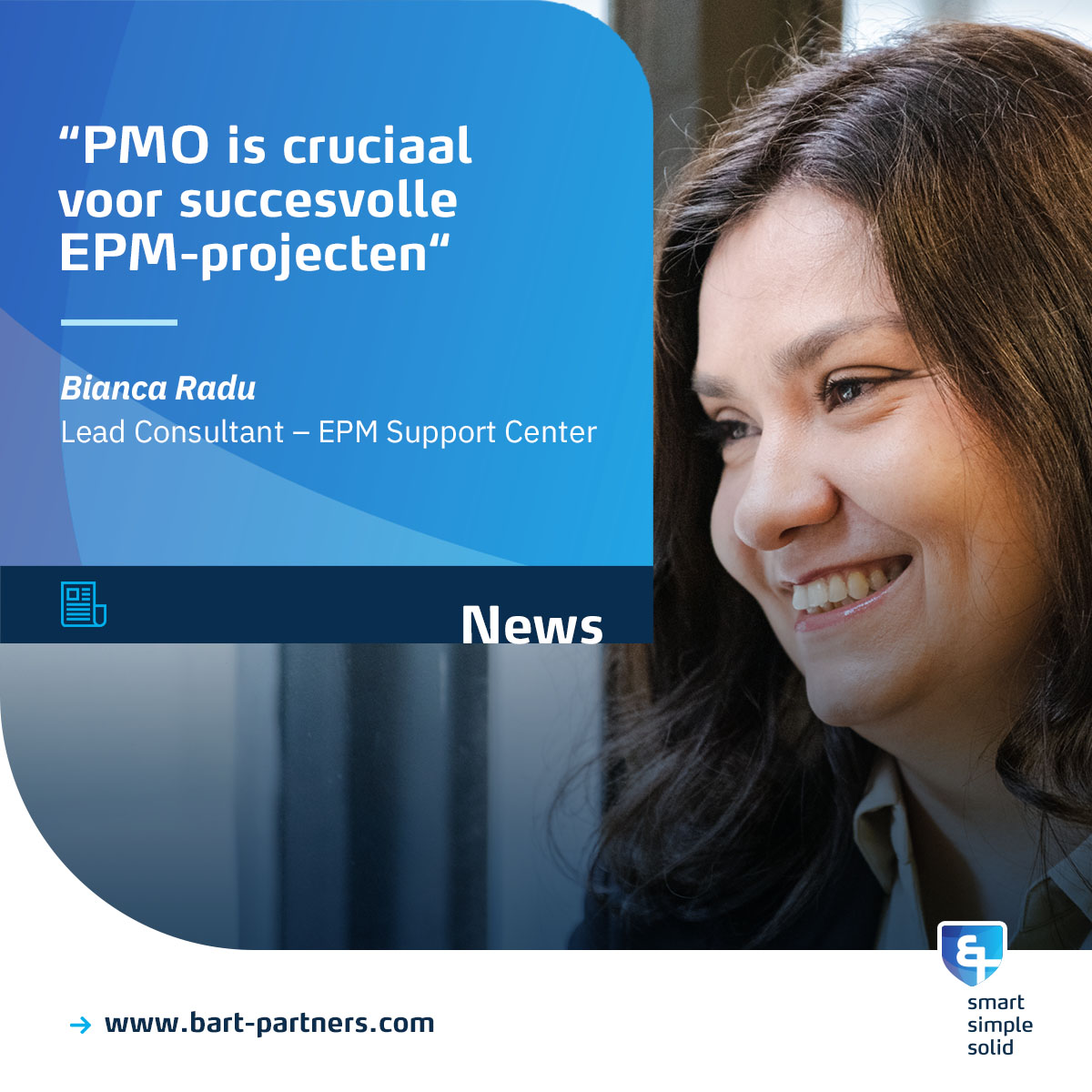
Waarom een PMO cruciaal is voor succesvolle EPM-projecten16 Minuten geschatte leestijd
Het implementeren van een Enterprise Performance Management (EPM)-oplossing kan leiden tot aanzienlijk betere bedrijfsprestaties. Maar het brengt ook uitdagingen met zich mee. Het coördineren van meerdere teams, beheren van budgetten en afstemmen op bedrijfsdoelstellingen vraagt een zorgvuldige planning en uitvoering.
Zonder Project Management Office (PMO) is het risico groot dat de uren, planning en kosten al snel uit de hand lopen. Een PMO biedt een raamwerk met standaarden, methodieken en best practices om projecten soepel te laten verlopen. Daarnaast fungeert een PMO als het kompas van een project. Het stuurt langs obstakels, beheert tijdlijnen en middelen en managet onverwachte risico’s.
Hoe een PMO bijdraagt aan het succes van EPM-projecten, lees je in dit artikel.
1. Tijd- en budgetanalyse: projecten op schema houden
Een van de meest cruciale functies van de PMO is zorgen dat projecten binnen de gestelde tijd en het budget blijven. In plaats van te wachten tot problemen zich voordoen, houdt de PMO voortdurend de vinger aan de pols via gedetailleerde tijd- en budgetanalyses.
Door belangrijke metrics nauwlettend te monitoren, kan de PMO snel vertragingen of kostenoverschrijdingen signaleren. Deze proactieve aanpak maakt tijdige aanpassingen mogelijk, waardoor het project niet uit de hand loopt en de stakeholders vertrouwen blijven houden in het proces.
2. Beoordelen van het projectplan: continue afstemming op doelstellingen
Plannen zijn zelden in beton gegoten, zeker bij complexe projecten als EPM-implementaties. De PMO houdt het projectplan scherp in de gaten en zorgt ervoor dat het blijft aansluiten bij de doelen van het bedrijf. Dit betekent dat tijdlijnen, mijlpalen en middelen regelmatig worden beoordeeld; en aangepast waar nodig. Wijkt het project af van het geplande pad? Dan grijpt de PMO in en zorgt voor hernieuwde duidelijkheid. Zo blijft het project op koers.
3. Monitoren van actiepunten, risico’s, beslissingen en wijzigingen: problemen voorblijven
Succesvol projectmanagement wacht niet af, maar anticipeert. De PMO speelt een sleutelrol in het vroegtijdig identificeren van risico’s, zodat teams proactief kunnen handelen.
Daarnaast houdt de PMO actiepunten en beslissingen nauwgezet bij. Actiepunten zijn specifieke taken die moeten worden afgerond, terwijl beslissingen vaak input of goedkeuring vereisen. Door deze elementen regelmatig te monitoren, blijft helder wie waarvoor verantwoordelijk is en wanneer taken moeten zijn afgerond.
Wijzigingen in scope, deadlines of middelen zijn onvermijdelijk in dynamische projecten. De PMO beheert deze wijzigingen door de impact zorgvuldig te beoordelen en de nodige aanpassingen in het projectplan door te voeren. Door risico-identificatie, actiepuntenbeheer en beslissingsmonitoring te combineren, helpt de PMO teams soepel aan te passen zonder de uiteindelijke doelstellingen uit het oog te verliezen.
4. Wekelijkse voortgangsvergaderingen: communicatie en teamwerk verbeteren
Communicatie is cruciaal voor elk project. De PMO speelt hierin een faciliterende rol. Wekelijkse voortgangsvergaderingen zorgen ervoor dat teamleden op één lijn blijven en op de hoogte zijn van de laatste ontwikkelingen. Deze sessies zijn essentieel om lopende taken te bespreken, prestaties te erkennen en problemen tijdig op te lossen.
Bij EPM-projecten, waar samenwerking tussen afdelingen de norm is, versterken de vergaderingen het teamwerk en houden ze het project op koers.
5. Maandelijkse stakeholdervergaderingen: belanghebbenden betrokken houden
Bij EPM-projecten zijn vaak meerdere stakeholders betrokken, waaronder het hogere management en afdelingsleiders. Zij willen regelmatig updates krijgen over de voortgang. De PMO organiseert maandelijkse vergaderingen om deze stakeholders op de hoogte te houden van de projectprestaties, uitdagingen en belangrijke beslissingen.
De vergaderingen bevorderen transparantie en bieden stakeholders de mogelijkheid om input te geven of bij te sturen. Door besluitvormers goed geïnformeerd te houden, worden alle partijen op één lijn gebracht en werken ze aan dezelfde doelen, wat het vertrouwen en de samenwerking binnen de organisatie versterkt.
Conclusie
In de wereld van Enterprise Performance Management (EPM)-projecten creëert de PMO een omgeving waarin projecten kunnen slagen. Door de voortgang regelmatig te controleren, projectplannen aan te laten sluiten bij de organisatiedoelen en open communicatie te bevorderen, bouwt de PMO aan een cultuur van teamwork en verantwoordelijkheid. Deze proactieve aanpak voorkomt niet alleen problemen, maar maakt van uitdagingen ook kansen voor groei en verbetering.
Uiteindelijk fungeert de PMO als een belangrijke partner binnen de organisatie en stemt het projecten af op de bredere bedrijfsdoelstellingen. Zolang EPM-projecten blijven veranderen en groeien, blijft de PMO essentieel om inspanningen naar succes te leiden en waardevolle resultaten te leveren.
Over de auteur
Bianca Radu is gespecialiseerd in EPM technical design, implementaties, upgrades en migraties. Ze heeft een consultancy achtergrond en is daarnaast gecertificeerd customer success manager.
English 🇬🇧
Why a PMO is Crucial for Successful EPM Projects
Implementing an Enterprise Performance Management (EPM) solution can significantly improve a company’s performance, but it also presents several challenges. Coordinating multiple teams, managing budgets, and aligning with business goals demand careful planning and execution. This is where a Project Management Office (PMO) becomes indispensable.
A PMO provides the framework that guides projects to successful outcomes. It establishes the necessary standards, methodologies, and best practices to guarantee that initiatives run smoothly. But beyond setting up processes, the PMO acts as the project’s compass, steering it through potential obstacles by managing timelines, resources and unforeseen risks. In this article we’ll explore how PMO drives the success of EPM projects.
Hoe een PMO bijdraagt aan het succes van EPM-projecten, lees je in dit artikel.
1. Time & Budget Analysis: Keeping Projects on Track
One of the PMO’s most critical functions is keeping projects on schedule and within budget. Rather than waiting for problems to arise, the PMO keeps a constant pulse on progress through detailed time and budget analysis. By closely monitoring key metrics, the PMO can quickly flag delays or cost overruns. This proactive approach allows timely adjustments, safeguarding the project from spiraling out of control—and ensuring stakeholders remain confident in the process.
2. Reviewing the Project Plan: Continuous Alignment with Objectives
Plans are rarely set in stone, especially in complex projects like EPM implementations. The PMO regularly revisits the project plan to ensure it remains aligned with the business’s wider goals. This involves assessing timelines, milestones and resources and making adjustments when necessary. If the project deviates from the path, the PMO intervenes, recalibrating the plan so the project can move forward with renewed clarity.
3. Monitor Action Items, Risks, Decisions and Changes: Staying Ahead of Issues
Successful project management does not wait for problems to arise; it anticipates them. A key role of the PMO is to identify risks before they escalate, ensuring that teams are prepared to address them proactively.
Furthermore, it is essential for the PMO to monitor action items—specific tasks that need to be completed—and decisions that require input or approval. Regularly tracking these elements helps maintain clarity around who is responsible for what and when tasks are due. Additionally, because projects are dynamic, changes in scope, deadlines or resources are inevitable.
The PMO manages these changes effectively, carefully evaluating their impact and facilitating the necessary adjustments to the project plan. By integrating risk identification, action item management, and decision monitoring, the PMO helps teams adapt seamlessly without losing sight of the project’s ultimate goals.
4. Weekly Progress Meetings: Enhancing Communication and Teamwork
Communication is one of the most important aspects of any project, and the PMO serves as its facilitator. Weekly progress meetings ensure team members stay aligned and informed of the latest developments. These sessions are essential for addressing ongoing tasks, recognizing achievements and troubleshooting any emerging issues. Particularly in EPM projects, where cross-departmental collaboration is common, these meetings enhance teamwork and keep the project moving in the right direction.
5. Monthly Stakeholder Meetings: Keeping Key Decision-Makers Engaged
EPM projects often involve multiple stakeholders, including senior management and department leaders, who need regular updates on project progress. The PMO organizes monthly meetings to keep stakeholders informed about the project’s performance, challenges, and any significant decisions.
These meetings foster transparency and allow stakeholders to provide input or to steer as needed. Keeping decision-makers well-informed aligns all parties and keeps them working toward the same goals, strengthening trust and collaboration across the organization.
Conclusion
In the world of Enterprise Performance Management (EPM) projects, the PMO creates an environment where projects can succeed.
By regularly checking on progress, making sure project plans align with the organization’s goals, and encouraging open communication among team members, the PMO builds a culture of teamwork and responsibility. This proactive approach not only helps avoid problems but also turns challenges into opportunities for growth and improvement.
In the end, the PMO acts as a key partner within the organization, aligning projects with larger business goals. As EPM projects continue to change and grow, the PMO will remain essential, guiding efforts to reach success and deliver valuable results.
About the auther
Bianca Radu is specialized in EPM technical design, implementations, upgrades and migrations. She has a consultancy background and is also a certified customer success manager.

